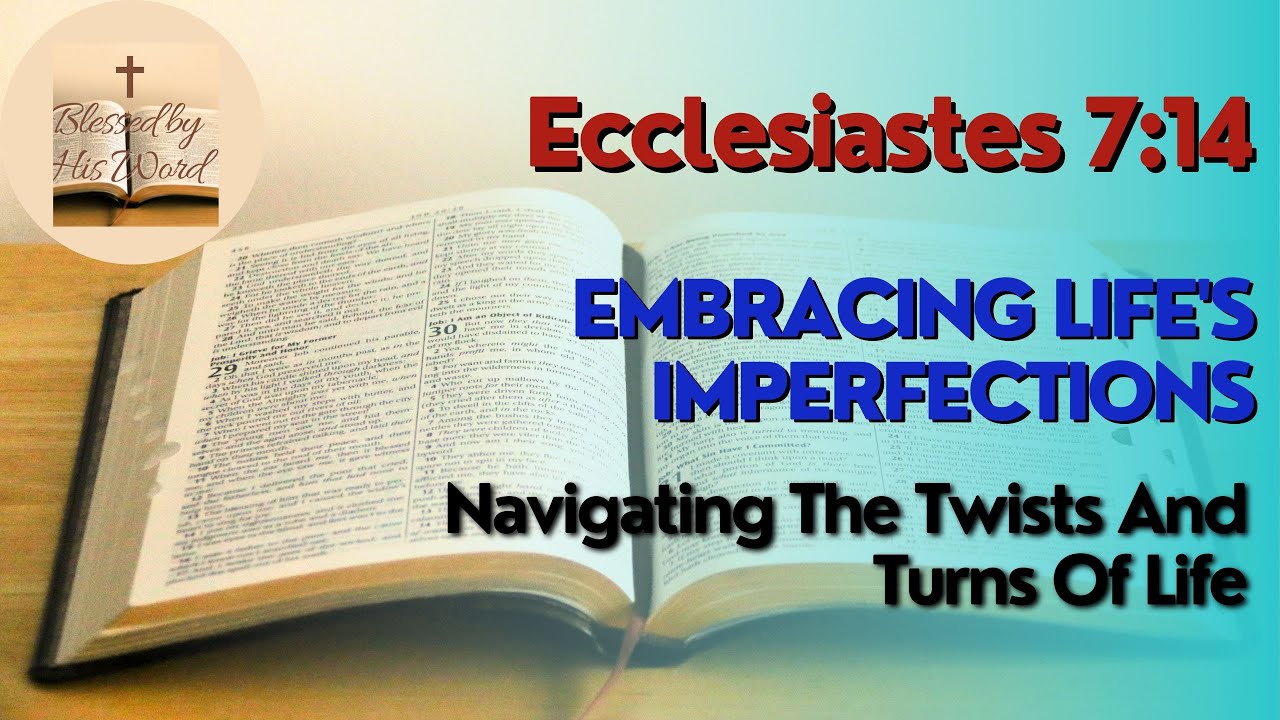Have you ever found yourself seeking wisdom and guidance in the face of life’s uncertainties? In Ecclesiastes 18:7-14 of the Catholic Bible, we are presented with profound insights that can provide clarity and comfort in times of doubt and confusion. Join us as we delve into this passage and uncover the timeless teachings that offer solace and direction in our journey of faith.
Exploring the Wisdom of Ecclesiastes 18:7-14 in the Catholic Bible
Sure, here is the detailed and extensive content for Ecclesiastes 18:7-14 from the Catholic Bible with the use of tags:
Ecclesiastes 18:7-14 (Catholic Bible)
7 A wise man will hold his tongue till he sees an opportunity, but a babbler and a fool will regard no time.
8 He that useth many words shall hurt his own soul: and he that taketh authority to himself unjustly shall be hated.
9 There is a success which turneth into evil, and there is a success that is not followed by a second.
10 And there is a gift that shall profit nothing, and there is a gift that is double the worth of the giver.
11 There is an abasement because of glory; and there is that hath lifted up his head from a low estate.
12 There is that buyeth much for a little, and repayeth sevenfold.
13 A wise man by his words shall make himself beloved: but the graces of fools shall be poured out.
14 The gift of a fool shall do thee no good, for his eyes are sevenfold.
This passage from Ecclesiastes provides wisdom on various aspects of life, emphasizing the importance of restraint in speech, the consequences of using many words, the nature of success, the value of gifts, the effects of glory and humility, and the impact of one’s words on relationships. It encourages readers to be mindful of their actions and words, to seek wisdom, and to discern the true value of things in life.
Is Ecclesiasticus in the Catholic Bible?
Yes, Ecclesiasticus is included in the Catholic Bible. It is considered one of the deuterocanonical books, also known as the Apocrypha, and is recognized as part of the Old Testament in Catholic and Eastern Orthodox Christian traditions.
What is Ecclesiastes in the Roman Catholic Bible?
Ecclesiastes in the Roman Catholic Bible is a book of wisdom literature attributed to King Solomon. It is also known as the Book of Ecclesiastes or the Preacher. This book reflects on the fleeting nature of life, the pursuit of wisdom, and the ultimate meaninglessness of many human endeavors. It is often seen as a meditation on the mysteries of existence and the importance of living a righteous life in the face of uncertainty and impermanence.
What is the meaning of Ecclesiastes 7 14?
In Ecclesiastes 7:14, it says, “In the day of prosperity be joyful, but in the day of adversity consider: God also hath set the one over against the other, to the end that man should find nothing after him.” This verse encourages believers to embrace joy during times of prosperity but to also reflect on the challenges and trials of life. It reminds us that both good and bad experiences are part of God’s plan, ultimately leading us to seek Him and find our purpose.
Who wrote Ecclesiastes Catholic?
The author of Ecclesiastes in the Catholic Bible is traditionally believed to be King Solomon. However, some modern scholars suggest that it may have been written by a different author or compiled from various sources.
FAQs
What is the significance of the verses Ecclesiastes 18:7-14 in the Catholic Bible?
The verses Ecclesiastes 18:7-14 in the Catholic Bible emphasize the importance of seeking wisdom and avoiding sin in order to find true happiness and fulfillment in life.
How do the teachings in Ecclesiastes 18:7-14 relate to other passages in the Bible?
The teachings in Ecclesiastes 18:7-14 emphasize the importance of wisdom, humility, and fear of the Lord. These themes are also found in other passages throughout the Bible, such as Proverbs 9:10 which states, “The fear of the Lord is the beginning of wisdom.”
What lessons can be learned from the verses in Ecclesiastes 18:7-14 for our daily lives?
The verses in Ecclesiastes 18:7-14 teach us to fear God and keep His commandments, for judgment will come upon all our deeds, whether good or evil. This reminds us to live wisely and with a reverent respect for God in our daily lives.

